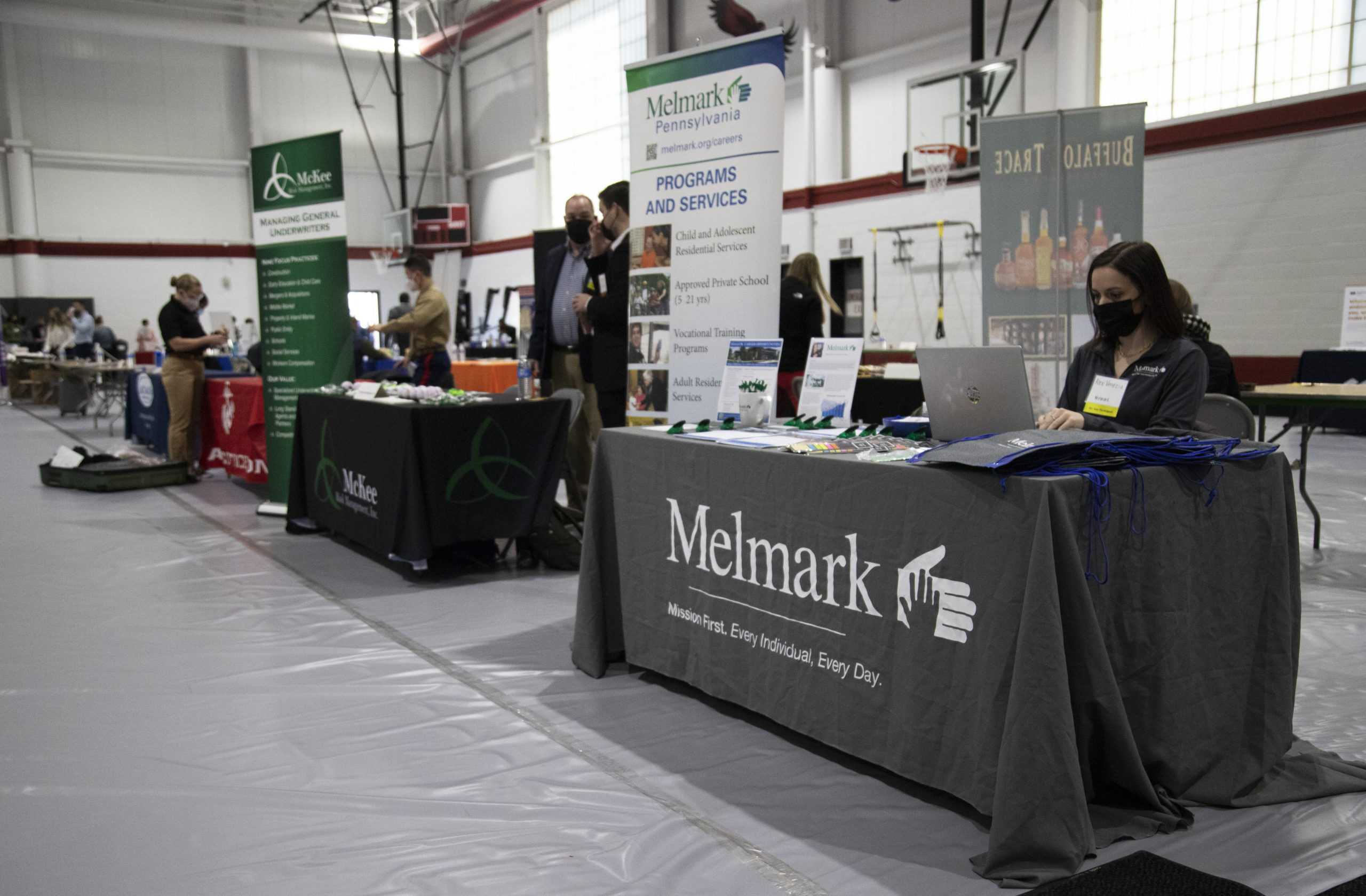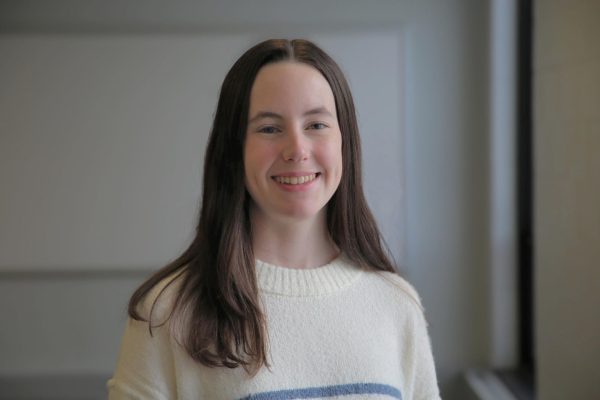St. Joe’s held its first in-person career fair since spring 2020 on Feb. 10, drawing fewer students than it had in the last two years. A virtual career fair had been held on Feb. 3.
Combined attendance at these two fairs was about half of what it had been in spring 2020, the last time the university hosted an in-person fair.
Last month’s in person fair was attended by 213 students, and the virtual fair drew 232 students, according to Career Development Center data. Although some students attended both formats, 376 unique students attended at least one fair. In comparison to spring 2020, 677 students attended the fair.
“The default seems to now be virtual over in-person, so we’re combatting a lot of habits, a lot of psychology of ‘should I go? shouldn’t I go?’” said Trish Shafer, executive director of the Career Development Center. “In the virtual world, nobody knows if you’ve gone or not, and there’s maybe some social anxiety even around stepping out and doing that in-person thing.”
St. Joe’s is one of only two colleges in the region to hold an on-campus career fair this spring, Shafer said. West Chester University held an in-person career fair on Feb. 23, followed by a virtual fair the next day. Across both fairs, 453 unique students attended out of an undergraduate population of approximately 14,500.
Jennifer Rossi Long, director of the Twardowski Career Development Center at West Chester University, said the pandemic has left students exhausted.
“I think that when you’re trying to survive in the moment, it’s very hard to look towards your future and plan for your future,” Rossi Long said. “You are just like, ‘What needs to get done today for me to make it through the day?’”
Maya Mendoza ’23, a psychology major who attended both St. Joe’s career fairs this spring, said attending events in person after two years of being online feels like it takes more effort than it used to.
“I think emotionally, it’s a lot to take in,” Mendoza said. “I feel like we need to transition a bit more back into it so that those sorts of things aren’t as scary.”
Makenzie Koonrad ’22, a marketing major, had never attended a career fair at St. Joe’s until she went to the virtual fair last month. Koonrad said she worked through her own anxiety to attend.
“I’ve never been to the in-person [fair], so it kind of overwhelmed me to think about going to it,” Koonrad said. “But then the virtual one had a company of interest for me, so I decided to do the virtual one.”
Shafer said low career fair attendance may go beyond pandemic-related and other stressors. Shafer said that members of Generation Z, comprised of people born between 1997 and 2012, have grown up in an “on-demand world.” They do not understand that a job does not materialize in the same way that a delivery order does, Shafer said.
“There are a lot of students who I think are like, ‘February, pfft, I’m not going in February. I’ll pick this up in April or May when I’m ready,’ not fully recognizing that you can get hired in three weeks but more often it takes eight to 12 to 16 weeks to get hired,” Shafer said.
Students want to wait until they feel ready to seek out a job, without understanding the recruiting schedule of employers, Shafer said. At fall career fairs, employers are looking for seniors who will be graduating that upcoming May, while spring career fairs are more for sophomores and juniors seeking summer internships.
At St. Joe’s most recent fairs, seniors made up 48% of attendees, with 26% being juniors and 9% being sophomores. Sophomores and juniors should be attending in more equal numbers, Shafer said.
“If an employer is on campus recruiting, that’s the signal to the student that [the employer is] ready to make some hiring decisions,” Shafer said.
For all grade levels, the virtual fair was slightly more well-attended than the in-person fair, but many employers and students seem to prefer the in-person experience because it allows for unexpected connections.
“We haven’t found a [virtual] platform that really replicates that in-person experience, and what we’re hearing from employers and students is that they want that [in-person experience],” Rossi Long said.
Koonrad said she wishes she attended the in-person career fair because she might have found an opportunity she wasn’t expecting.
“I am looking for a job, and even though a lot of them [employers] didn’t interest me, maybe they would have after I had talked to some more companies,” Koonrad said.















































